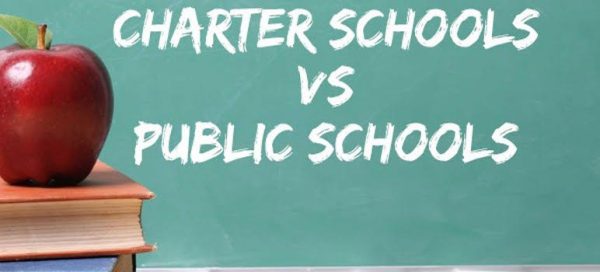
The National Party in Government, especially during the neo-liberal era, has had a habit of foisting stupid education policies onto the rest of us, which are intended to act as the ‘thin edge of the wedge’ towards privatisation. In the 1990s, it was Lockwood Smith’s ‘targeted individual entitlement’, or TIE scheme. In the lexicon of education, this was a ‘voucher scheme’, providing funds from the state for children (in this case low-income) to attend private schools. The idea was formed during the period labelled by Matthew Hooten as ‘neo-con ultra’. It did not survive the change of government in 1999.
In the 2008-2017 regime, there have been two daft neo-lib ideas that come to mind. The first is Teach First, a scheme to offer a very short teacher education course for graduates, followed by what is essentially an apprenticeship in state schools. Such schemes are, in the USA, attempts at union-busting.
In Aotearoa, the worst thing that can be said is that these young apprentices are grossly under-prepared for children with learning difficulties, whether caused by disability, teratogenesis (parental drugs and alcohol), the effects of poverty (for a quarter of a million of our children) and so on. Oh yes, and that the burden of supervising people completely unprepared for the classroom falls heavily onto teachers.
The second silly idea is charter schools. Again influenced by the neo-lib principle that the private sector is always better and more efficient than the public, the National Government ravaged the Education Act to create a new category of schools, which were neither wanted nor needed.
None of the schools are full because the demand is not that high. The drop-out rate before NCEA is disgraceful – one in four do not even get to NCEA level one. Pass rates at NCEA level two, considered a benchmark qualification, are far lower than the overall population and far lower than the Māori population.
And don’t even get me started on the nature of New Zealand’s charter schools, especially the Vanguard Military Academy that considers authoritarian discipline is the solution to youth disengagement. I have always been dismayed at how the children of the rich have access to sophisticated liberal education regimes which offer unlimited opportunities while the poor are clapped into a strict institutional training regime aimed at making them ‘behave’.
I must say I have always been a supporter of the Pasifika Rise Up school, as it genuinely emerged from its community and met a need (although it is also not full). Nevertheless, I would have preferred that they and other communities use other routes to set up schooling systems that meet their needs. Perhaps it is time to reinstate Community Education Forums, an initiative abolished by National in 1991.
Then there are the state schools left behind. Low decile schools are now nearly one third the size, on average, of high decile schools, as my research showed in 2015. Parents choose ‘up’ on purely social grounds, as all the research ever completed on this topic shows. Putting untested new schools in these poor neighbourhoods only makes things worse.
Oh yes, and Save Our Schools ran the figures and demonstrated that, after accommodation costs, charter schools cost around twice as much as state schools in the same area. This little experiment has thus revealed that charter schools are unpopular, low-performing and expensive.
There is not much else to say about this painful experiment except to urge the Minister to put in place some support for the students as they transition back into the state system. I reckon a package of $5000 per student, for advice, support and new uniforms will be enough.
Some who should know better argue that the government is contractually bound to these charter schools. This is not the case. There is a strong constitutional imperative that says new governments have the right to govern unshackled by the decisions of their predecessors.
Some Māori claim that some of the charter schools are offering a high-quality Māori educational experience unavailable in the state system. This needs to be investigated (some of the claimants have vested interests, and there are plenty of voices in Maoridom opposed to charter schools, including the great Professor Graham Smith). If these schools are providing something different and better, the Minister needs to ‘open’ one or more as state schools, or take similar action.
The first step for Labour is to unpick the bad stuff. Then there is plenty of good stuff to be implemented. More on the good stuff later.
Dr Liz Gordon began her working life as a university lecturer at Massey and the Canterbury universities. She spent six years as an Alliance MP, before starting her own research company, Pukeko Research. Her work is in the fields of justice, law, education and sociology (poverty and inequality). She is the president of Pillars, a charity that works for the children of prisoners, a prison volunteer, and is on the board of several other organisations. Her mission is to see New Zealand freed from the shackles of neo-liberalism before she dies (hopefully well before!).


The existing education system doesn’t seem to work for some kids. A few charter schools that model some different approaches doesn’t seem like a bad idea to me.
Couldn’t agree with you more Dr Liz and absolutely agree that charter schools should be gotten rid of. My understanding, under this new government, is that charter schools will be given an opportunity to conform to state regulation and operate as
“special character” schools or close. Just read the other week of one charter school, due to open this year, decided not to after talks with the ministry of education.
Comments are closed.